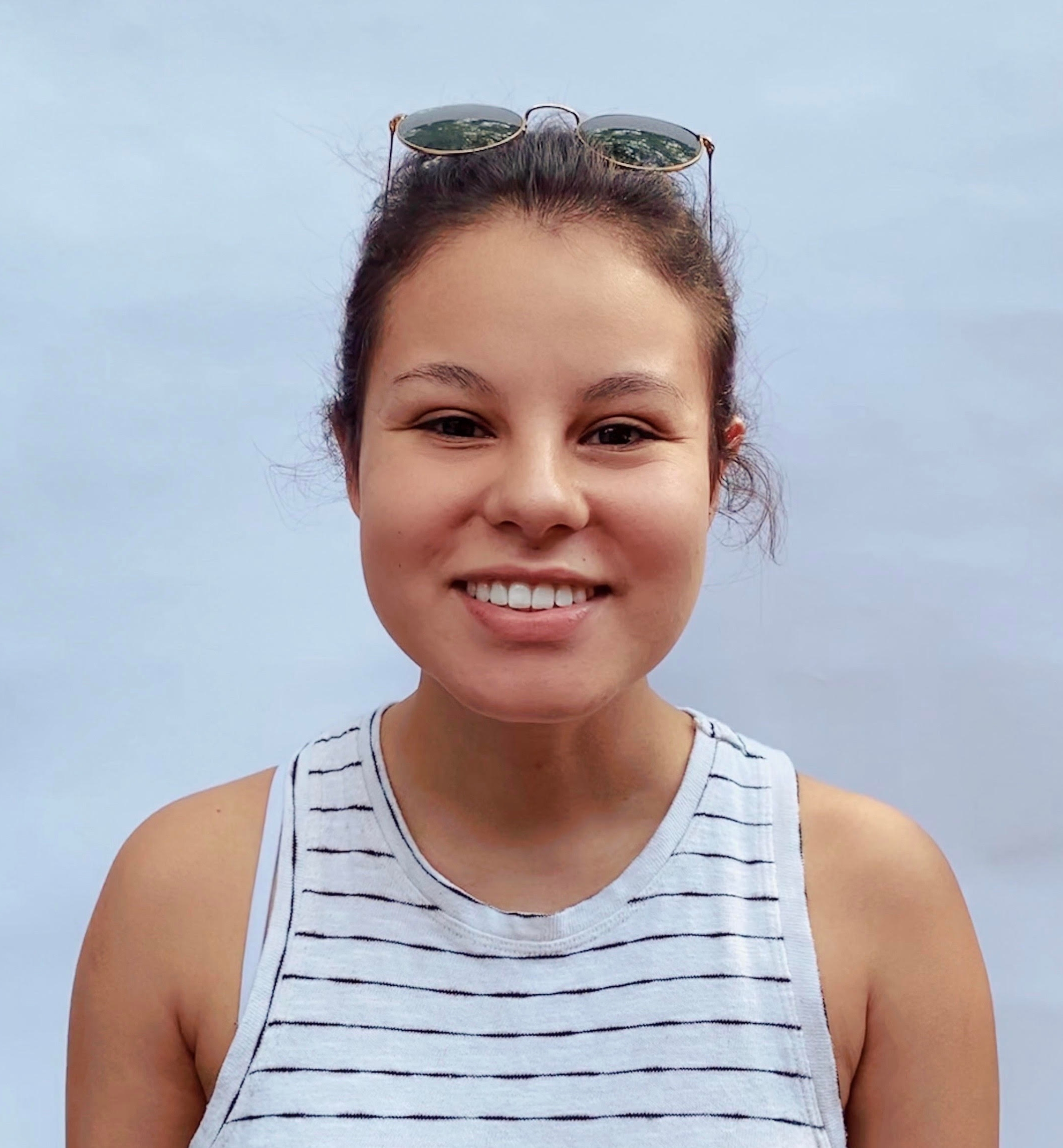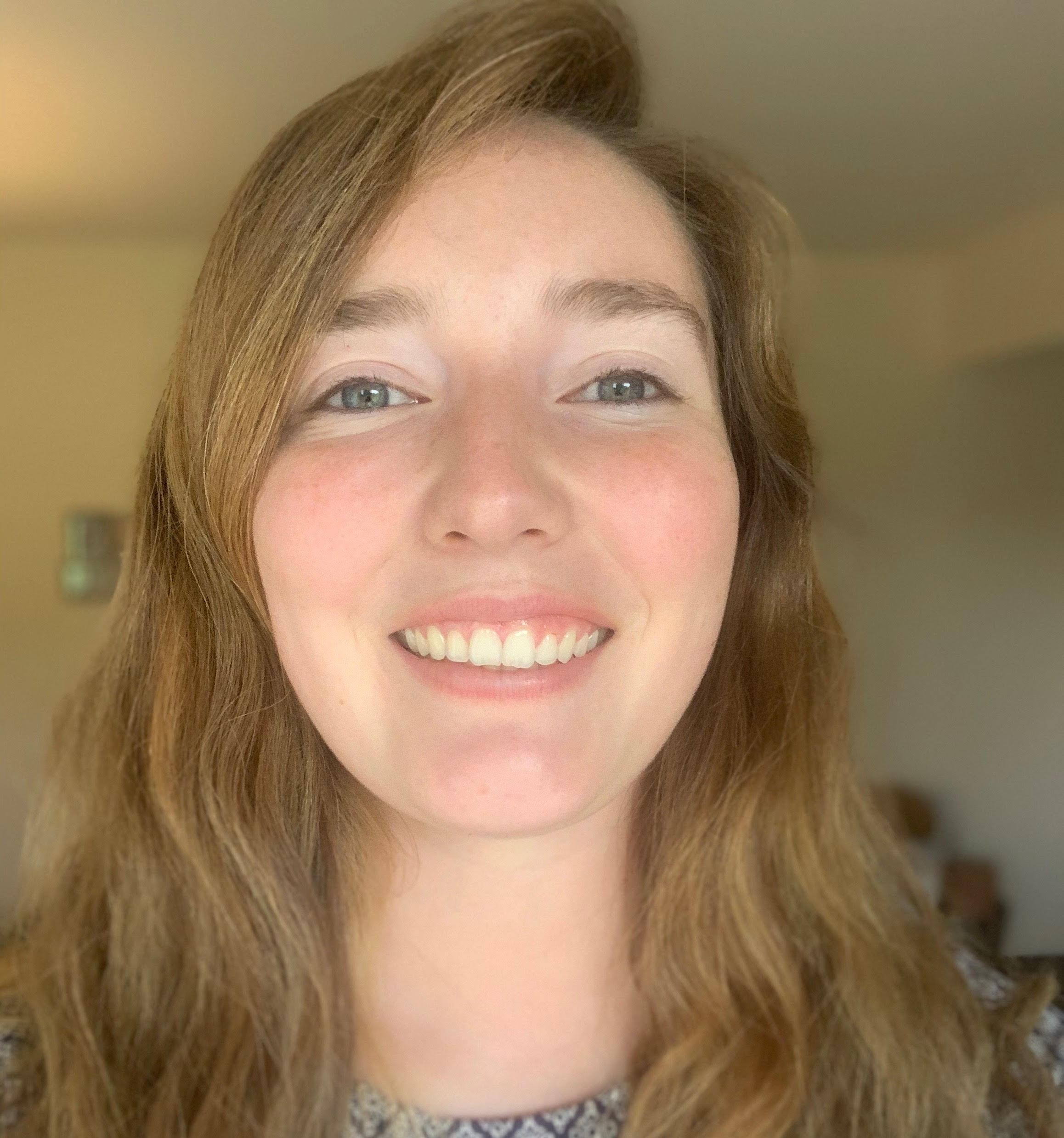Improving COVID-19 communication in the New River and Roanoke Regions: An interview with Fernanda Gutierrez and Laura Lang, MPH candidates ‘21


Fernanda Gutierrez and Laura Lang are current Master of Public Health (MPH) students pursuing both the infectious disease and public health education concentrations. Fernanda and Laura have developed and adapted COVID-19 educational content to improve COVID-19 communication in the New River and Roanoke regions. They have especially placed emphasis on reaching diverse populations, including Spanish-speaking communities. Fernanda and Laura have launched several initiatives, including educational and outreach COVID-19 materials in both Spanish and English, contact tracing training tools, and a podcast that provides a local perspective of the global pandemic. More information on their activities can be found in the below interview.
The issue our team is trying to address is the improvement of the COVID-19 communication strategy in the New River Valley. The goal of our project is to develop and adapt COVID-19 educational content and communication strategies that engage diverse populations (e.g., students, community members, public health professionals, etc.) across the New River Valley (NRV) and Roanoke.
We have collaborated with Virginia Tech, the New River Health District and the Roanoke City Health District to launch several initiatives, including the design of educational and outreach COVID-19 materials in both Spanish and English that can be distributed to community members, the creation of contact tracing training tools that can help alleviate burden for contact tracers and a podcast, "Your Health Hotline", that provides a local perspective of the global pandemic.
More specifically, by creating educational and outreach materials as well as contact tracing guides, we aimed to create and adapt resources for marginalized communities who might not know where to find reliable information and social resources in the New River Valley and Roanoke. For instance, we created Spanish/English resources that are tailored to our population’s reading level and pertinent to the NRV/ Roanoke area. Moreover, we searched for health care clinics that would provide care to patients without insurance as well as food banks and mental health services to those who are uninsured, etc. By creating the podcast, we aimed to encourage the community to take preventative measures to prevent the spread of COVID-19. We intend to do this by providing community members with varied perspectives on why it is important to wear masks, physically distance and practice sick etiquette.
We were recruited by Dr. Laura Hungerford, the Department Head of the Department of Population Health Sciences, and Dr. Ron Fricker, the Associate Dean for Faculty Affairs and Administration in the College of Science, to work on a collaborative modelling project regarding COVID-19 within the Virginia Tech and Blacksburg Community. Fernanda had been volunteering as a Spanish contact tracer for the Roanoke City Health District and realized that there is a great need for Spanish resources within the NRV and Roanoke area. When Fernanda spoke about it within a team meeting, Laura became interested and began helping with the creation of materials that could be used in outbreak sites as well as during contact tracing. Laura then had the idea of creating a podcast in which we would interview NRV community members to gain their perspective on COVID-19 and highlight their contributions in fighting the pandemic.
We wanted to create Spanish educational and outreach resources as the COVID-19 pandemic has exacerbated health disparities in the community and disproportionately impacted racial and ethnic minority groups. In this case, while working as contact tracers and speaking with health department officials, our team realized how the Hispanic community in both the New River Valley and Roanoke area has been disproportionately impacted by the pandemic and how important it would be to create resources that were accessible to these communities. Moreover, we had the idea of creating training guides in both Spanish and English for volunteer contact tracers. Based on our experience as contact tracers, we understood the value of proper training and knowing about social resources to relay to those who have tested positive with COVID-19 and might need assistance finding low-cost health-care, food banks, mental health resources, etc. Finally, we were inspired to launch the podcast as we wanted to bring light to the efforts done locally in the NRV and showcase how the pandemic has affected people differently and inspire people to do their part to fight the virus.
This experience has helped us better realize how important stakeholder relationships and understanding community needs are when developing public health community efforts. For this project, we utilized the skills we gained from pursuing the infectious disease and public health education concentrations offered by our MPH program. For instance, we assessed population needs and applied cultural values to design our projects. Moreover, we put a heavy emphasis on collaboration by connecting with different stakeholders and utilizing their expertise. We have met with interdisciplinary groups who have guided us at every step and brought awareness of various health disparities and community needs.
As students, we are learning how to tailor our messages to the general public and use lay language to communicate scientific/ clinical information and public health recommendations. Through guidance from various public health professionals, we realized the importance of using different mediums to convey this information (e.g., posters, flyers, podcasts, etc). One of our most difficult tasks has been creating professional looking and sounding outlets that people could trust. Thankfully, our stakeholders at Virginia Tech have connected us with a team of professionals who can professionally assist us with this task.
The most rewarding experience has been listening, talking to, and learning from various New River Valley community members who have participated in our podcast. We have spoken with Dr. Carla Finkelstein, who is leading the COVID-19 diagnostic testing at VT; Dr. Noelle Bissell, the Director of the New River Health District; Chief Anthony Wilson, the Chief of the Blacksburg police; Dr. Lisa Lee, the director of the division of Scholarly Integrity and Research Compliance at VT; Dr. Pamela Teaster, the director of the Virginia Tech Center for Gerontology; students who are fighting COVID-19 at the front lines (e.g., doing testing, contact tracing, working behind the scenes at the health department); immunocompromised community members, etc.
The most surprising thing to us has been the multiple levels of assistance that we have received, from close connections within our department and Virginia Tech to strangers outside of the university and the state. We have been amazed at how welcoming everyone has been, especially in this uncertain and busy time. This allowed us to take a lead on these projects and help our community.
A particular moment that stood out to us is when we met with a New York not-for-profit, Documented NY, that has been working on creating a WhatsApp community for undocumented immigrants in NY that have questions about COVID-19. Unorthodox ideas like this stand out when they emphasize community specific needs or communication tools and therefore truly have potential to make a positive impact.
Our expectation going into the experience was that we would assist Dr. Hungerford and Dr. Fricker with their endeavors, but instead they allowed us to lead our own project and run with our own ideas. Having their support has helped us enormously to grow as students and public health professionals.
Links to the Podcast:
“Your Health Hotline” Podcast Facebook Page
“Your Health Hotline” Spotify Page
Virginia Tech Daily article: "Pods useful in fighting the spread of COVID-19"


